European Parliament, Brussels 15th of June: Public Hearing on the occasion of The International Day in Support of Victims of Torture with the participation of the OMCT
Very disturbing practices used in countering terrorismhave become a source of undermining fully established human rights norms, suchas the universal ban of torture and other ill-treatments - this was one of theconclusions of the public hearing of the Subcommittee on Human Rightstoday, 15 June, held to mark the upcoming International Day against Tortureon 26th June.
"More than 20 years after the entryinto force of the Convention against Torture, an increasing number ofgovernments are allowing the practice of torture to spread, and public opinionappears to be tolerant of the practice", recalled Heidi Hautala(Greens/EFA, FI), chairperson of the Subcommittee on Human Rights at theopening of the hearing.
Speaking about the main challenges to the absoluteprohibition of torture and other inhumane treatments in the context ofcounter-terrorism, particularly with reference to Pakistan, Ms Hina Jilani,human rights lawyer and a founding member of the Human Rights Commission inPakistan, underlined the increased potential of the use of torture by states incombating terrorism, mentioning that the main reason for this is the lack ofaccountability of national authorities dealing with counter-terrorismactivities.
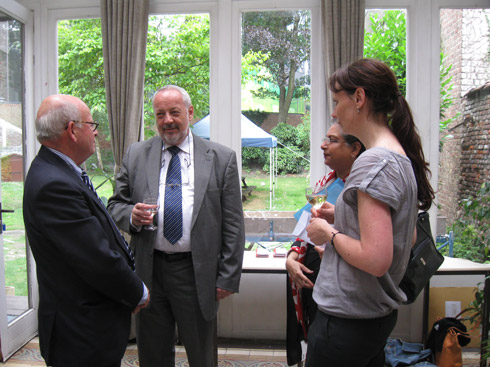
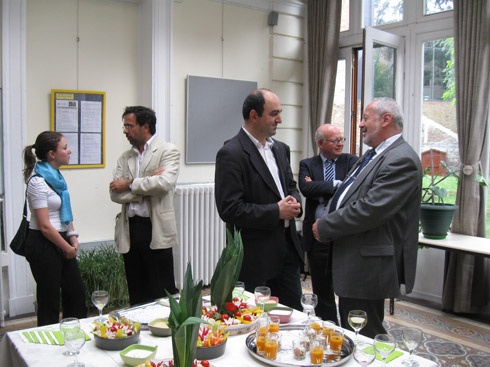
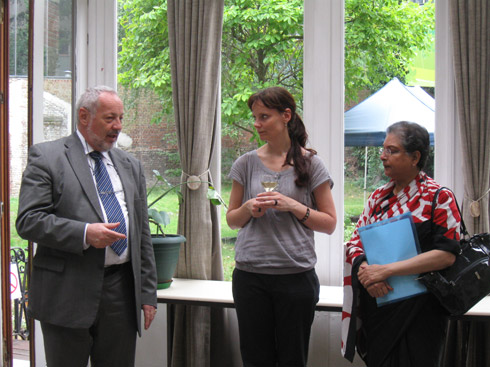
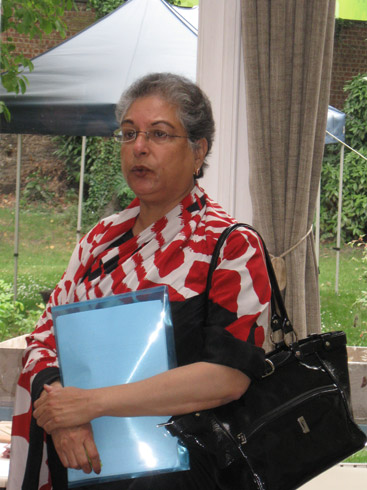
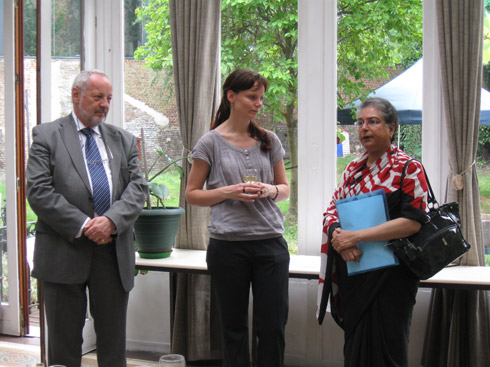
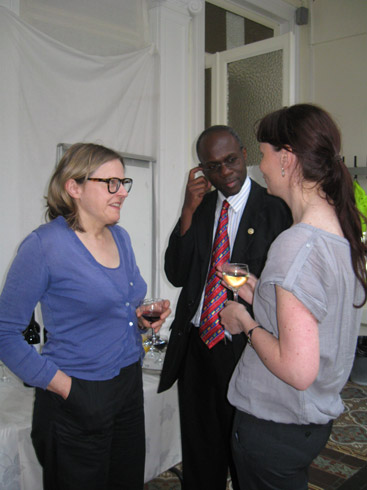
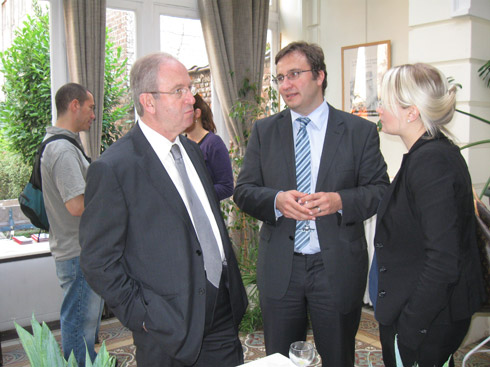
Reception by the OMCT Europe, during the public hearing of June 15, 2011, to mark the International Day in Support of Victims of Torture in the presence of Hina Jilani, the Human Rights Commission Pakistan - Heidi Hautala, member of European Parliament (Greens, Finland) - Eric Sottas, OMCT Secretary General and Gerald Staberock, Deputy Secretary General, OMCT.
No scrutiny of intelligence services
Another alarming trend in her opinion is the militaryresponse to terrorism - incommunicado detention, forced disappearances -practices potentially allowing torture and which cannot be detected. Thismilitarisation and the expanded role of intelligence services in counteringterrorism have lead to "parallel systems of justice, with very limitedjudicial and civil scrutiny", said Ms Jilani.
Moreover, according to Ms Jilani, in most countries"there is no legal basis for the transfer of power to interrogate anddetain to secret services" which in the end are unaccountable bodiesenjoying immunity. She added that intelligence is incrementally encroaching inthe domain of law enforcement.
On the questions raised be MEPs Richard Richard Howitt(S&D, GB) and Barbara Lochbihler (Greens/ EFA, DE) on the need to haveclear guidelines to deal with secret services, Mr Eric Sottas, SecretaryGeneral, World Organisation Against Torture (OMCT) replied: "We need toestablish clear standards, since there is an obligation of security serviceswhen they have a feeling that information originates from sources where tortureis a common practice."
Crucial role of prosecution and conviction ofterrorist suspects
"Counter-terrorism actions are certainly notconclusive unless they take the directions of proper prosecution of terroristsuspects. Ms Jilani underlined that conviction and prosecution are crucial dueto the following reasons:
· justifying the full engagement ofgovernment in countering terrorism
· helping raise public awareness andcombating propaganda according to which these suspects are supposedly victimsof injustice
· transparency - people forget thecommitted crimes and associate terrorist activities with some kind ofideology, thus becoming very difficult to find public support for counterterrorism measures. This perpetuates power and influence of groups interestedin promoting terrorism activities in order to promote a particular agenda.
Future funding of trauma therapy centres in Europe
MEP Lochbihler expressed her concerns regarding thefuture of the Centers for torture victims post-2013 when funding from theEuropean Instruments for Democracy and Human Rights (EIDHR) will expire sincethese centres function within the EU and the EIDHR has an external dimension.The EEAS representative informed about a 1 million Euros pilot project whichhas been launched to ensure the sustainable financing of these rehabilitationcentres.
Psychological terror in Communist Europe
MEPs Vytautas Landsbergis (EPP, LT) and Lazslo Tokes(EPP, RO) recalled the systematic use of psychological torture in the countriesof the Communist bloc, a cruel technique, very difficult to prove but withlong-lasting consequences on the victims.
Lotte Leicht from Human Rights Watch recalled thatthere 118 court verdicts of the European Court for Human Rights dealing withtorture, impunity, forced disappearances in Russia, which have to beimplemented and called on the MEPs to put pressure by raising this cases highon the political agenda with Russia.
In the chair: Heidi HAUTALA (Greens/EFA, FI)
The video recording of the entire discussion isavailable here (search for Subcommittee on Human Rights, 15 May, 2011):
http://www.europarl.europa.eu/wps-europarl-internet/frd/vod/search-committees?language=en
The documents of the hearing are available here:
European Parliament resolution of 9 June 2011 onGuantánamo: imminent death penalty decision
Contact:
Ioana BOBES
Press Unit
foreign-press@europarl.europa.eu
*******************
This is an informal message intended to helpjournalists covering the work of the European Parliament. It is neitheran official press release nor a comprehensive record of proceedings.
*******************
Attachments
-
- image
View15thJune picture 1
-
- image
View15thJune picture 2
-
- image
View15thJune picture 3
-
- image
View15th June picture 4
-
- image
View15thJune picture 5
-
- image
View15thJune picture 6
-
- image
View15thJune picture 7
Related resources
-
- 26.06.11
- Urgent Interventions
Read more26 June 2011 - International Day in Support of Victims of Torture